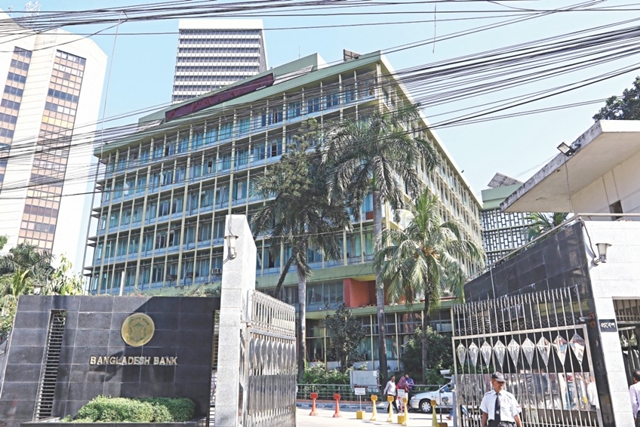SAM
Published:2019-10-10 23:08:07 BdST
Political commitment key to solutionSour loans could derail growth momentum: BB
FT ONLINE
Managing higher troubled loans and tight liquidity conditions on the domestic front alongside external challenges are likely to pose a downside risk to the growth momentum, the central bank has said.
The external challenges include sluggish global growth, disrupting supply chain by the escalating trade war, Brexit- related uncertainty and rising geopolitical tension.
"A coordinated monetary and fiscal policy is required for ensuring growth momentum and stable inflation," the Bangladesh Bank (BB) said in its April-June report.
Interest rates on both deposit and lending showed some upward nudge, the report said.
The weighted average interest rates on deposit and lending increased to 5.43 percent and 9.58 percent in the final quarter of the fiscal year 2018-19 from 5.35 percent and 9.5 percent respectively from the year-earlier period.
The number of soured loans climbed by Tk 15.52 billion to Tk 1.12 trillion as of June 30, 2019, the central bank data showed.
Reducing bad loans at "a tolerable level" remains one of the prime concerns for the banking sector's stability, the report said.
"Enforcement of prudential policies and judicial supervision with political commitment are needed to handle these stressed assets," the report noted.
Senior economists and experts suggested the policymakers take "effective measures" to address the higher soured loans issue immediately.
The ongoing growth momentum, as well as financial stability, maybe hampered if the upward trend in such loans continues, they warned.
"The recovery of classified loans should be strengthened with legal reforms, if necessary," former director-general of the Bangladesh Institute of Development Studies Mustafa K Mujeri said.
Unless the issue of non-performing loans is addressed with urgency, the banking system will not be able to play its role in the country's transition to the middle-income status, argued Mr. Mujeri, a former chief economist of the central bank.
"The rising trend in troubled loans should be controlled for ensuring the stability of the country's financial sector," Toufic Ahmed Choudhury, former director-general of the Bangladesh Institute of Bank Management (BIBM), told the FE.
The banking analyst suggested selling out bad loans to asset-management companies by enacting new laws.
Such companies should be empowered legally to recover bank money from the defaulters, he said.
Despite downside risks, the central bank is bullish about the economy.
It expected the growth rate to hit achieve 8.20 percent target by the end of FY '20.
"Looking ahead, the economic growth outlook is expected to remain strong … and inflation remains at below the targeted level in FY '20," it noted.
In FY'19, Bangladesh's economy maintained a strong growth momentum with stable inflation, amidst subdued global growth emanated mainly from the escalating trade tension, rising geopolitical tension, and the Brexit-related uncertainty.
Unauthorized use or reproduction of The Finance Today content for commercial purposes is strictly prohibited.


